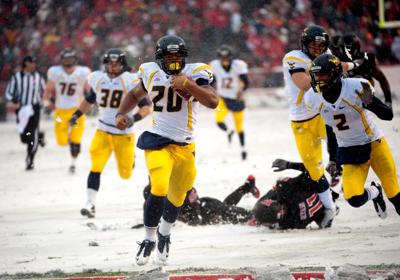
In a rare show of unity, the US Supreme Court decided unanimously Monday that the NCAA can’t enforce rules limiting education-related benefits colleges may offer student-athletes, such as computers and paid internships. The ruling could reshape college sports by allowing more money from a billion-dollar industry to go to its players.

It is the first time in decades the Supreme Court has considered the issue and is a dramatic win for a class of students who say they were exploited.
The case doesn’t decide whether students can be paid salaries. Instead, the ruling will help determine whether schools decide to offer athletes tens of thousands of dollars in education benefits for things including tutoring, study abroad programs and graduate scholarships.
Justice Neil Gorsuch wrote for the court that the NCAA sought “immunity from the normal operation of the antitrust laws.” And he said that allowing colleges and universities to offer “enhanced education-related benefits … may encourage scholastic achievement and allow student-athletes a measure of compensation more consistent with the value they bring to their schools.”
Under current NCAA rules, students cannot be paid, and the scholarship money colleges can offer is capped at the cost of attending the school. The NCAA had defended its rules as necessary to preserve the amateur nature of college sports.
In his concurring opinion, Justice Brett Kavanaugh wrote, “Nowhere else in America can businesses get away with agreeing not to pay their workers a fair market rate on the theory that their product is defined by not paying their workers a fair market rate … and under ordinary principles of antitrust law, it is not evident why college sports should be any different. The NCAA is not above the law.”
As a result, the NCAA won’t be able to stop schools from sweetening their offers to Division I basketball and football players with additional education-related benefits. But individual athletic conferences can still set limits if they choose.
College sports raise billions of dollars from ticket sales, television contracts and merchandise, and supporters of the students say the players are being exploited and barred from the opportunity to monetize their talents. In 2016, for example, the NCAA negotiated an eight-year extension of its broadcasting rights to March Madness, worth $1.1 billion annually.

Be the first to comment